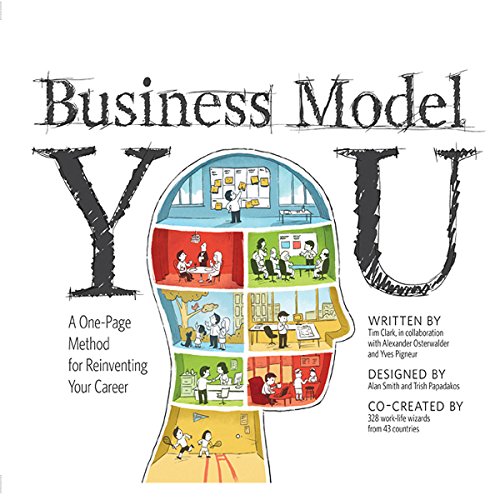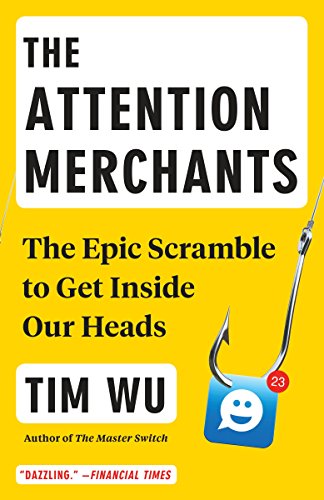Amazon Books

The number-one best-selling pioneer of "fratire" and a leading evolutionary psychologist team up to create the dating book for guys. Whether they conducted their research in life or in the lab, experts Tucker Max and Dr. Geoffrey Miller have spent the last 20-plus years learning what women really want from their men, why they want it, and how men can deliver those qualities. The short answer: Become the best version of yourself possible, then show it off. It sounds simple, but it's not. If it were, Tinder would just be the stuff you use to start a fire. Becoming your best self requires honesty, self-awareness, hard work, and a little help. Through their website and podcasts, Max and Miller have already helped over one million guys take their first steps toward Miss Right. They have collected all of their findings in Mate, an evidence-driven, seriously funny playbook that will teach you to become a more sexually attractive and romantically successful man, the right way: No "seduction techniques" No moralizing No bullshit Just honest, straightforward talk about the most ethical, effective way to pursue the win-win relationships you want with the women who are best for you. Much of what they've discovered will surprise you, some of it will not, but all of it is important and often misunderstood. So listen up, and stop being stupid!
A one-page tool to reinvent yourself and your career. The global best seller Business Model Generation introduced a unique visual way to summarize and creatively brainstorm any business or product idea on a single sheet of paper. Business Model You uses the same powerful one-page tool to teach listeners how to draw "personal business models," which reveal new ways their skills can be adapted to the changing needs of the marketplace to reveal new, more satisfying, career and life possibilities. Produced by the same team that created Business Model Generation, this audiobook is based on the Business Model Canvas methodology, which has quickly emerged as the world's leading business model description and innovation technique. This book shows listeners how to: - Understand business model thinking and diagram their current personal business model - Understand the value of their skills in the marketplace and define their purpose - Articulate a vision for change - Create a new personal business model harmonized with that vision - And most important, test and implement the new model When you implement the one-page tool from Business Model You, you create a game-changing business model for your life and career.
The bible for bringing cutting-edge products to larger markets—now revised and updated with new insights into the realities of high-tech marketing In Crossing the Chasm, Geoffrey A. Moore shows that in the Technology Adoption Life Cycle—which begins with innovators and moves to early adopters, early majority, late majority, and laggards—there is a vast chasm between the early adopters and the early majority. While early adopters are willing to sacrifice for the advantage of being first, the early majority waits until they know that the technology actually offers improvements in productivity. The challenge for innovators and marketers is to narrow this chasm and ultimately accelerate adoption across every segment. This third edition brings Moore's classic work up to date with dozens of new examples of successes and failures, new strategies for marketing in the digital world, and Moore's most current insights and findings. He also includes two new appendices, the first connecting the ideas in Crossing the Chasm to work subsequently published in his Inside the Tornado, and the second presenting his recent groundbreaking work for technology adoption models for high-tech consumer markets.
Endless terror. Refugee waves. An unfixable global economy. Surprising election results. New billion-dollar fortunes. Miracle medical advances. What if they were all connected? What if you could understand why? The Seventh Sense is the story of what all of today's successful figures see and feel: the forces that are invisible to most of us but explain everything from explosive technological change to uneasy political ripples. The secret to power now is understanding our new age of networks. Not merely the Internet, but also webs of trade, finance, and even DNA. Based on his years of advising generals, CEOs, and politicians, Ramo takes us into the opaque heart of our world's rapidly connected systems and teaches us what the losers are not yet seeing -- and what the victors of this age already know.
This lushly illustrated history of popular entertainment takes a long-zoom approach, contending that the pursuit of novelty and wonder is a powerful driver of world-shaping technological change. Steven Johnson argues that, throughout history, the cutting edge of innovation lies wherever people are working the hardest to keep themselves and others amused. Johnson’s storytelling is just as delightful as the inventions he describes, full of surprising stops along the journey from simple concepts to complex modern systems. He introduces us to the colorful innovators of leisure: the explorers, proprietors, showmen, and artists who changed the trajectory of history with their luxurious wares, exotic meals, taverns, gambling tables, and magic shows. In Wonderland, Johnson compellingly argues that observers of technological and social trends should be looking for clues in novel amusements. You’ll find the future wherever people are having the most fun.
Nothing “goes viral.” If you think a popular movie, song, or app came out of nowhere to become a word-of-mouth success in today’s crowded media environment, you’re missing the real story. Each blockbuster has a secret history—of power, influence, dark broadcasters, and passionate cults that turn some new products into cultural phenomena. Even the most brilliant ideas wither in obscurity if they fail to connect with the right network, and the consumers that matter most aren't the early adopters, but rather their friends, followers, and imitators -- the audience of your audience. In his groundbreaking investigation, Atlantic senior editor Derek Thompson uncovers the hidden psychology of why we like what we like and reveals the economics of cultural markets that invisibly shape our lives. Shattering the sentimental myths of hit-making that dominate pop culture and business, Thompson shows quality is insufficient for success, nobody has "good taste," and some of the most popular products in history were one bad break away from utter failure. It may be a new world, but there are some enduring truths to what audiences and consumers want. People love a familiar surprise: a product that is bold, yet sneakily recognizable. Every business, every artist, every person looking to promote themselves and their work wants to know what makes some works so successful while others disappear. Hit Makers is a magical mystery tour through the last century of pop culture blockbusters and the most valuable currency of the twenty-first century—people’s attention. From the dawn of impressionist art to the future of Facebook, from small Etsy designers to the origin of Star Wars, Derek Thompson leaves no pet rock unturned to tell the fascinating story of how culture happens and why things become popular. In Hit Makers, Derek Thompson investigates: · The secret link between ESPN's sticky programming and the The Weeknd's catchy choruses · Why Facebook is today’s most important newspaper · How advertising critics predicted Donald Trump · The 5th grader who accidentally launched "Rock Around the Clock," the biggest hit in rock and roll history · How Barack Obama and his speechwriters think of themselves as songwriters · How Disney conquered the world—but the future of hits belongs to savvy amateurs and individuals · The French collector who accidentally created the Impressionist canon · Quantitative evidence that the biggest music hits aren’t always the best · Why almost all Hollywood blockbusters are sequels, reboots, and adaptations · Why one year--1991--is responsible for the way pop music sounds today · Why another year --1932--created the business model of film · How data scientists proved that “going viral” is a myth · How 19th century immigration patterns explain the most heard song in the Western Hemisphere
Ours is often called an information economy, but at a moment when access to information is virtually unlimited, our attention has become the ultimate commodity. In nearly every moment of our waking lives, we face a barrage of efforts to harvest our attention. This condition is not simply the byproduct of recent technological innovations but the result of more than a century's growth and expansion in the industries that feed on human attention. Wu’s narrative begins in the nineteenth century, when Benjamin Day discovered he could get rich selling newspapers for a penny. Since then, every new medium—from radio to television to Internet companies such as Google and Facebook—has attained commercial viability and immense riches by turning itself into an advertising platform. Since the early days, the basic business model of “attention merchants” has never changed: free diversion in exchange for a moment of your time, sold in turn to the highest-bidding advertiser. Full of lively, unexpected storytelling and piercing insight, The Attention Merchants lays bare the true nature of a ubiquitous reality we can no longer afford to accept at face value.
Some people think that in today’s hyper-competitive world, it’s the tough, take-no-prisoners type who comes out on top. But in reality, argues New York Times bestselling author Dave Kerpen, it’s actually those with the best people skills who win the day. Those who build the right relationships. Those who truly understand and connect with their colleagues, their customers, their partners. Those who can teach, lead, and inspire. In a world where we are constantly connected, and social media has become the primary way we communicate, the key to getting ahead is being the person others like, respect, and trust. Because no matter who you are or what profession you're in, success is contingent less on what you can do for yourself, but on what other people are willing to do for you. Here, through 53 bite-sized, easy-to-execute, and often counterintuitive tips, you’ll learn to master the 11 People Skills that will get you more of what you want at work, at home, and in life. For example, you’ll learn: · The single most important question you can ever ask to win attention in a meeting · The one simple key to networking that nobody talks about · How to remain top of mind for thousands of people, everyday · Why it usually pays to be the one to give the bad news · How to blow off the right people · And why, when in doubt, buy him a Bonsai A book best described as “How to Win Friends and Influence People for today’s world,” The Art of People shows how to charm and win over anyone to be more successful at work and outside of it.








